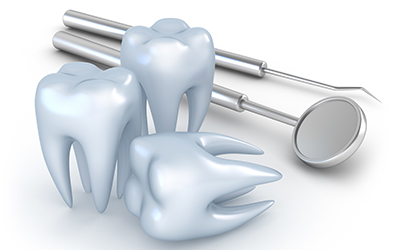Image Credit:
File ID 19333022 | © Alexandr Mitiuc | Dreamstime.com


Fluoride is a naturally occurring mineral that plays a central role in modern preventive dentistry. When applied to your teeth—whether via toothpaste, mouth rinses, or professional treatments—fluoride helps reinforce the mineral structure of enamel by facilitating remineralization. In effect, microscopic lost minerals (often due to acid exposure) are replenished, making the enamel more resistant to decay. This process helps block early lesions from progressing into cavities.
Fluoride also inhibits the acid-producing bacteria in plaque by disrupting their metabolism. That dual action—repairing early damage and suppressing harmful bacteria—makes fluoride one of the most important tools for maintaining oral health.
1. Lower Risk of Decay and Cavities
By strengthening the enamel, fluoride reduces the chance that acids will break it down. That means patients (children and adults alike) are less likely to require interventions like a cavity filling in Wichita, even if they consume sugary foods or drinks.
2. Cost-Effective Preventive Strategy
Compared to more invasive procedures like root canals, crowns, or restorative work, applying fluoride is fast, low-cost, and noninvasive. Over time, the savings in avoided restorative dentistry often far outweigh the investment.
3. Protection Around Dental Work
Teeth adjacent to restorations—such as fillings, crowns, or bridges—are vulnerable to decay in the margins. Fluoride helps fortify those edges and reduce recurrent decay risk.
4. Supports Sensitive or Exposed Roots
As gums recede with age or periodontal issues, root surfaces may become exposed. These surfaces are softer and more susceptible to acid attack. Fluoride treatments can help strengthen these vulnerable zones.
During regular visits, your dental provider can apply concentrated fluoride in gel, foam, or varnish form to help protect your teeth. These professional treatments deliver higher fluoride concentrations than over-the-counter products.
In some instances (especially in children living in non-fluoridated areas), your dentist may prescribe fluoride drops or tablets. But those are carefully managed to avoid overexposure and the risk of dental fluorosis (white spotting) in developing teeth.
At Auburn Family Dental, fluoride application is a standard part of our routine cleaning and examinations. (We apply fluoride “if indicated” after prophylaxis) It’s a measure that syncs perfectly with dental sealants, flossing guidance, and patient education.
If, despite good preventive efforts, decay occurs, we address it with appropriate care — for instance, through a cavity filling Wichita procedure. But fluoride helps reduce how often that necessity arises, and delays or minimizes the size of treatments.
Fluoride use doesn’t interfere with cosmetic dentistry Wichita efforts (such as whitening, veneers, or bonding). In fact, by preserving healthy enamel and preventing decay, fluoride supports the long-term durability of cosmetic work. Patients can confidently pursue smile-enhancement treatments knowing their underlying structure is better protected.
If you ever wonder whether fluoride is “enough,” keep in mind that it is one component of a comprehensive oral health plan, which also includes dental checkups, professional cleanings, good oral hygiene, and dietary moderation.
Auburn Family Dental brings compassionate, evidence-based care to patients seeking robust preventive services and cosmetic solutions alike. If you’re searching for a dentist in Wichita who emphasizes long-term enamel health as much as smile aesthetics, we invite you to visit our team. Our dentists, services, and patient resources reflect a holistic, patient-first philosophy.
By embracing fluoride as a regular part of your oral care, you’re not just protecting teeth—you’re investing in a lifetime of healthier smiles. Contact us today to discuss a fluoride plan tailored to your needs or to schedule your next preventive visit.